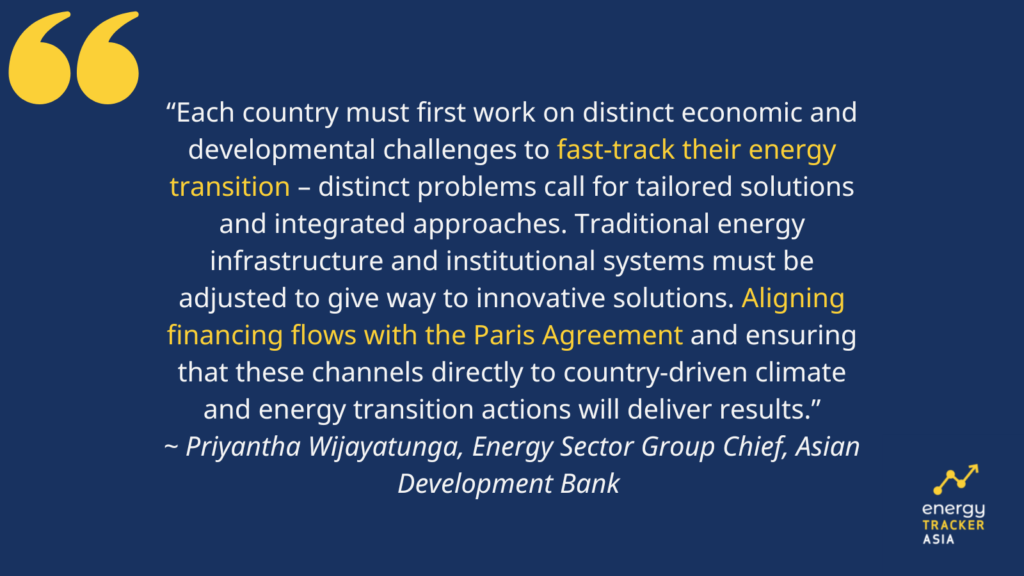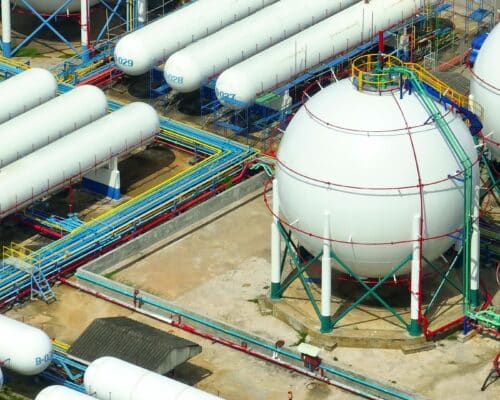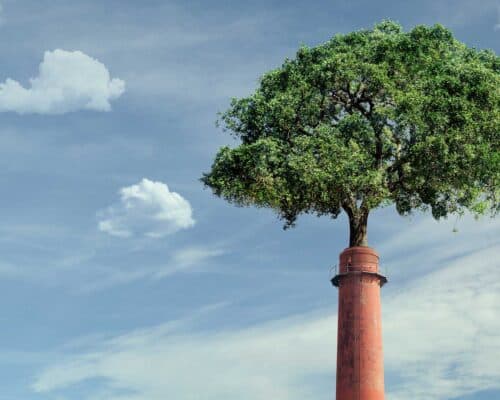Fuel Crisis 2022 Hampers Economic Development and Clean Energy Transition Goals
30 November 2022 – by Tim Daiss
The effects of the ongoing fuel crisis in 2022 are being felt globally. They are hampering economic development while enriching some of the most repressive and wealthiest regimes on the planet.
Countries Benefiting From the Fuel Crisis in 2022
Most of the countries benefiting from the fuel crisis are also some of the world’s largest oil and natural gas producers, creating excessive GHG emissions.
Qatar
One of these is legacy LNG producer Qatar. The country, which shares control of the world’s largest gas field with Iran, is now one of the wealthiest countries in the world. It has a GDP per capita of USD 93,521. This has moved it ahead of other top-tier nations, Luxembourg, Ireland, Switzerland and the US.
OPEC
Organisation of the Petroleum Exporting Countries (OPEC) members also top the list. The United Arab Emirates (UAE), which includes economic powerhouse Dubai, boasts a GDP per capita of nearly USD 38,000. And OPEC de facto leader Saudi Arabia follows that at USD 23,586.
Norway
However, it’s not just Middle Eastern nations that have produced massive wealth from energy crisis and fossil fuel production. Long-time North Sea natural gas producer Norway has a GDP per capita of just over USD 89,000.
Dictatorial Political Systems and Dismal Human Rights Records of these Fossil Fuels Producers
Apart from Norway, most of these fossil fuel producers have both dubious political systems and dismal human rights records. This is being heightened as nations capitalise on the record-high energy prices resulting from the war in Ukraine. Meanwhile, they are filling government coffers that will continue to support their own repressive regimes.
Saudi Arabia, the world’s largest crude oil exporter, is considered one of the most oppressive nations on the planet. According to an Amnesty International report, it became even more authoritarian in 2021.
“The crackdown continued on the rights to freedom of expression, association and assembly,” the report says. Some abuses include heavy prison terms for individuals working in human rights work and those who express dissenting views. Riyadh is also frustrating the country’s push for women’s rights.
“Courts resorted extensively to the death penalty, and people were executed for a wide range of crimes,” the Amnesty International report added.
Russia differs from its Middle Eastern fossil fuel-producing counterparts, as it is a major producer and exporter of crude oil and natural gas.
Russia relies on oil and gas revenue for as much as 45% of its federal budget. In 2021, its crude and condensate output reached 10.5 million barrels per day. The amount made up 14% of the world’s total supply. Its GDP per capita is currently USD 12,172.
Russia’s geopolitical ambitions have also impacted the oil and gas supply to both Europe and the world. Since its invasion of Ukraine earlier this year, energy prices have spiked. This year, oil prices broke the USD 100 per barrel price point for the first time since mid-2014.

Net-Zero Goals in Jeopardy
These oil and gas-producing countries will continue to make record profits while the world relies heavily on fossil fuels. Meanwhile, these actions are jeopardising the world’s net zero goals. Gas consumption fuels air pollution.
EU members are scrambling to replace the disrupted Russian gas supply. But, they are navigating the wrong course. They are largely choosing to replace gas with gas – in this case, LNG – as they develop more LNG infrastructure capacity.
Germany, the EU’s largest economy, has as many as five floating storage and regasification units (FSRU) currently in the works. It is planning at least two land-based LNG import terminals. The country plans to use them to import LNG for its own usage and as an LNG trading hub for other EU members.
However, undeveloped nations, including several in the Asia-Pacific region without sound clean energy transition goals in place, will suffer more than their European counterparts.
This comes as developing countries in Asia, including Sri Lanka, Pakistan, Bangladesh, Cambodia and others, that rely on gas and even crude oil for power generation cannot compete for the fuels against more developed nations. The nations are undergoing fuel shortages that have led to economic and political upheaval. The situation has also dashed any clean energy transition plans they may have had.
Muqsit Ashraf, who leads Accenture’s Global Energy Industry practice in Houston, says, “It doesn’t look like there is any way they can outbid the developed countries [for energy supply]. He adds, “It is having significant economic implications; it will also have an impact on their ability to fund other economic and national priorities.”
The problem has also set inflation and recessionary headwinds in motion, with higher domestic prices for oil, gas, food and other necessities. In 2022, inflation became a global phenomenon – impacting 100% of advanced countries and 87% of emerging markets.
Changing Course
However, since the Asia-Pacific region is home to more than 4 billion people and represents more than half of global GHG emissions, it has to set a course to tackle climate change and rein in emissions.
One answer, according to Asian Development Bank (ADB) Energy Sector Group Chief Priyantha Wijayatunga, is to address the distinct challenges in each individual area.
“Each country must first work on distinct economic and developmental challenges to fast-track their energy transition – distinct problems call for tailored solutions and integrated approaches,” he said.
“Traditional energy infrastructure and institutional systems must be adjusted to give way to innovative solutions,” added Wijayatunga. “Aligning financing flows with the Paris Agreement and ensuring that these channels directly to country-driven climate and energy transition actions will deliver results,” he said.
by Tim Daiss
Tim has been working in energy markets in the Asia-Pacific region for more than ten years. He was trained as an LNG and oil markets analyst and writer then switched to working in sustainable energy, including solar and wind power project financing and due diligence. He’s performed regulatory, geopolitical and market due diligence for energy projects in Vietnam, Thailand and Indonesia. He’s also worked as a consultant/advisor for US, UK and Singapore-based energy consultancies including Wood Mackenzie, Enerdata, S&P Global, KBR, Critical Resource, and others. He is the Chief Marketing Officer (CMO) for US-based lithium-sulfur EV battery start-up Bemp Research Corp.
Read more



